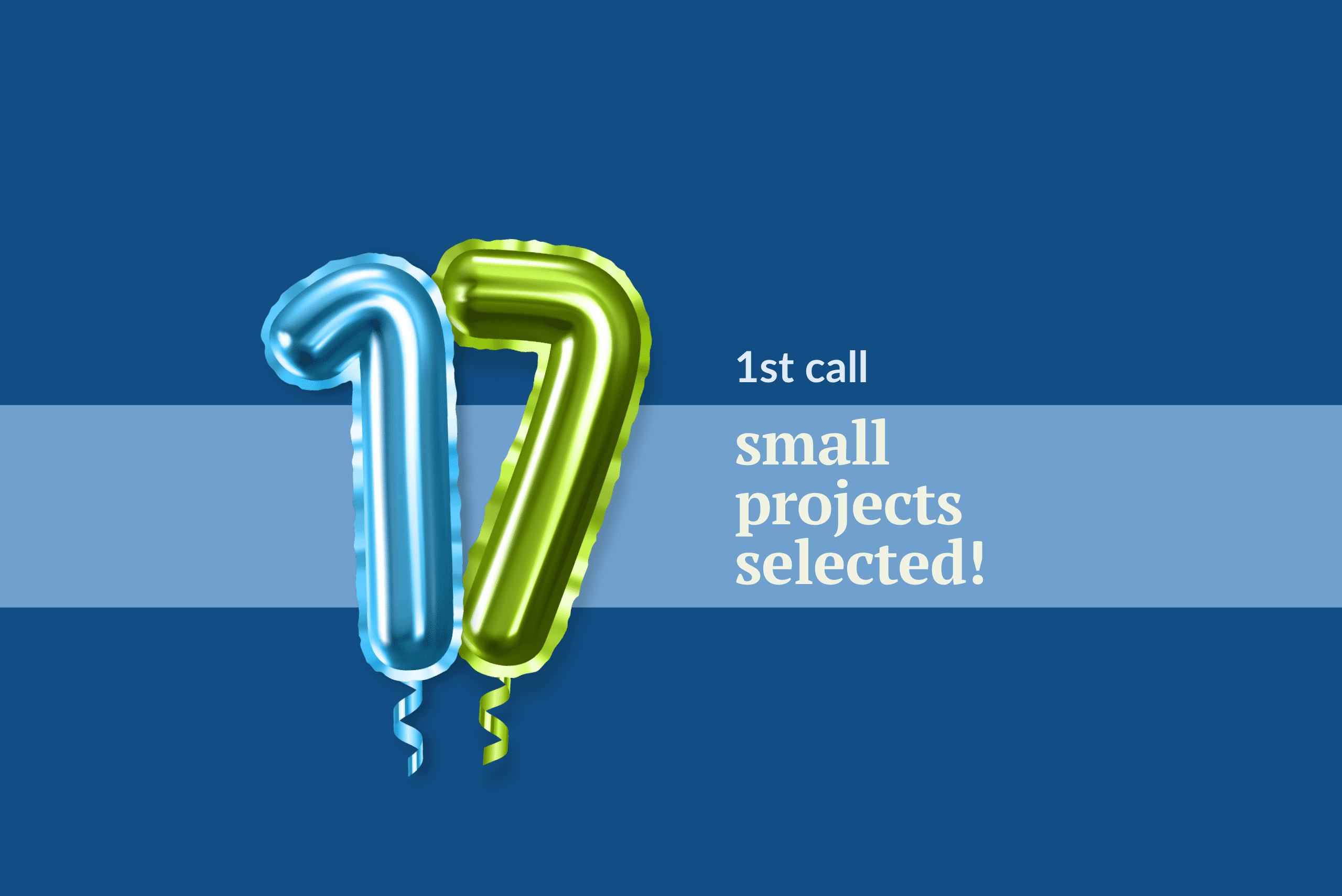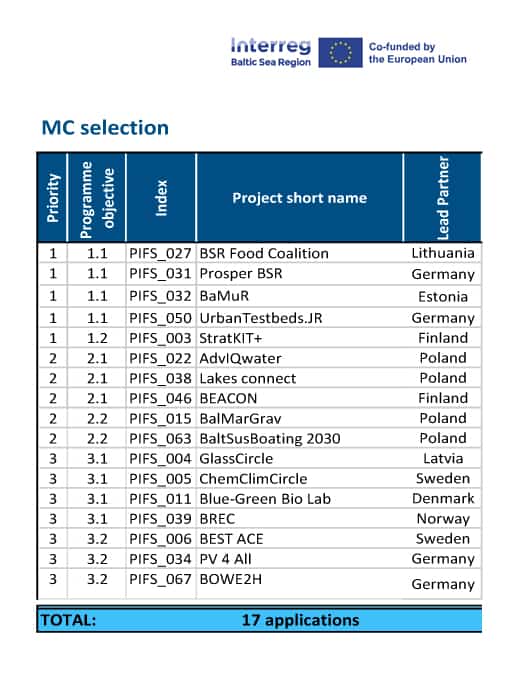
15 June 2022
First projects selected for more cooperation in the region!
Written by Anna Gałyga
Interreg Baltic Sea Region is all about creating opportunities for organisations to connect as if there were no borders. Now, for the first time in the new Programme, the Monitoring Committee members selected projects for funding!
Monitoring Committee for 2021-2027
Just two weeks after the Interreg Baltic Sea Region Programme was adopted by the Commission, the Programme’s first Monitoring Committee meeting took place in Warsaw on 14-15 June 2022. Teresa Marcinów from the Ministry of Development Funds and Regional Policy of Poland chaired the meeting as it is Poland that holds the chairmanship this year.
Representatives of the Programme countries took part in the meeting. In addition, a representative from the European Commission and the Managing Authority/Joint Secretariat staff members attended the meeting as observers.
Small projects trigger cooperation!
Small projects is a new financial instrument that facilitates access to the Programme. Out of 42 received applications in all three Programme priorities, the Monitoring Committee selected 17 projects for funding. The requested funds amount to EUR 6.4 million from the European Regional Development Fund.
In priority 1 ‘Innovative societies’, the Monitoring Committee selected five projects for funding: four projects in objective 1.1 Resilient economies and communities and one in objective 1.2 Responsive public services.
In priority 2 ‘Water-smart societies’, the Monitoring Committee selected five projects for funding: three projects in objective 2.1 Sustainable waters and two in objective 2.2 Blue economy.
In priority 3 ‘Climate-neutral societies’, the Monitoring Committee selected seven projects for funding: four projects in objective 3.1 Circular economy and three in objective 3.2 Energy transition.
Funding for macro-regional cooperation!
The Programme supports actions that strengthen the implementation of the EU Strategy for the Baltic Sea Region (EUSBSR). This means, among others, funding to the policy area coordinators (PACs) to coordinate the policy areas and facilitate the implementation of actions defined in the EUSBSR action plan. During this meeting, the Monitoring Committee approved applications by the policy area coordinators that will enable them to continue their work.
The new Baltic Sea Strategy Point will support the Strategy management, communication, coordination and capacity building. The Monitoring Committee approved the application with Centrum Balticum Foundation, Finland, as the lead partner. This application was developed in cooperation with the Free and Hanseatic City of Hamburg, Germany.
More recent news
Grand results of the first round of small projects!
Despite the winter scenery, the results of 17 finalised Interreg Baltic Sea Region projects are in full bloom! And behind them lie two years of intensive work across borders, mutual learning and inspiration, and connections that last.
Climate-neutral future at hand for Baltic Sea region cities
Turning a city into a climate-neutral one requires knowledgeable people, thorough planning and solid financial resources. But how can cities manage this transition smoothly? The Interreg project Climate-4-Case guides cities around the Baltic Sea on how to do that right.
Designing Interreg Baltic Sea Region that belongs to everyone
10 December 2025 Designing Interreg Baltic Sea Region that belongs to everyone Written by Eeva Rantama What if the next Interreg Baltic Sea Region...
Monitoring the Programme’s progress: transnational cooperation in the making
Representatives from nine Programme area countries gathered in Berlin on 19-20 November 2025 to review the progress of the Programme’s implementation and start preparing for the post-2027 period.







